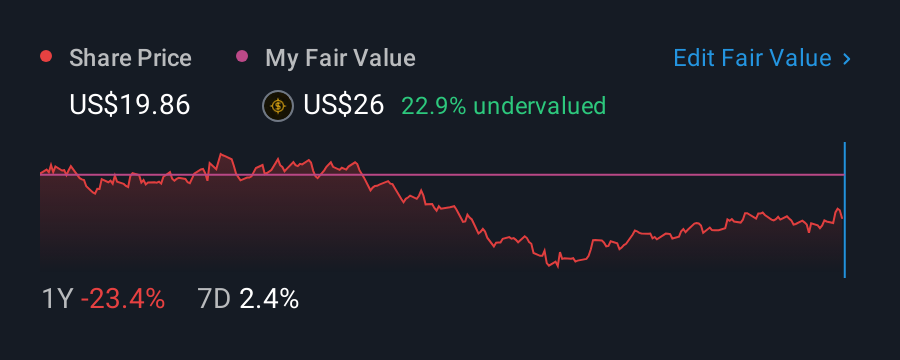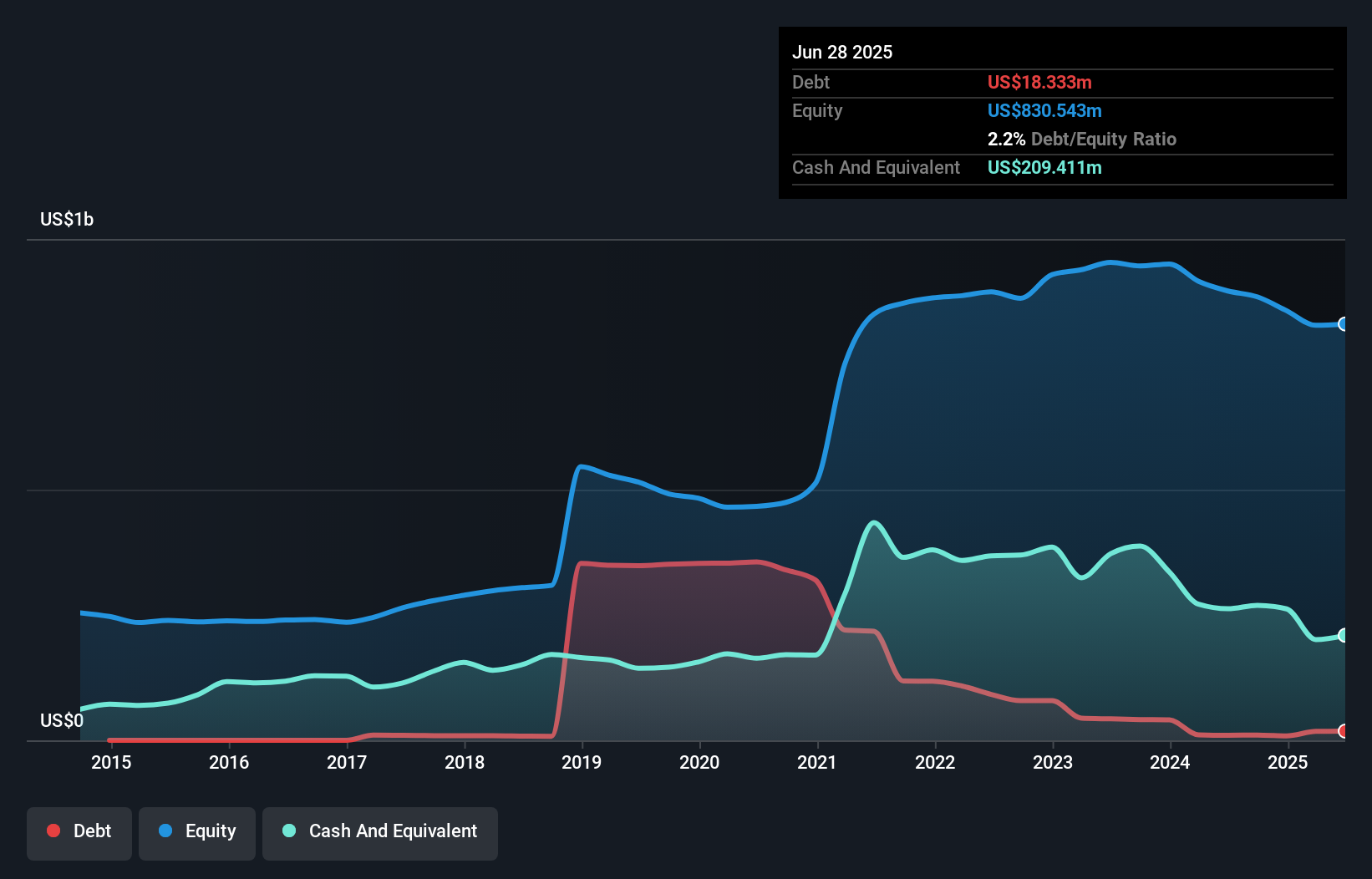

The external fund manager backed by Berkshire Hathaway's Charlie Munger, Li Lu, makes no bones about it when he says 'The biggest investment risk is not the volatility of prices, but whether you will suffer a permanent loss of capital.' When we think about how risky a company is, we always like to look at its use of debt, since debt overload can lead to ruin. We can see that Cohu, Inc. (NASDAQ:COHU) does use debt in its business. But should shareholders be worried about its use of debt?
When Is Debt Dangerous?
Generally speaking, debt only becomes a real problem when a company can't easily pay it off, either by raising capital or with its own cash flow. Part and parcel of capitalism is the process of 'creative destruction' where failed businesses are mercilessly liquidated by their bankers. However, a more common (but still painful) scenario is that it has to raise new equity capital at a low price, thus permanently diluting shareholders. Of course, plenty of companies use debt to fund growth, without any negative consequences. The first step when considering a company's debt levels is to consider its cash and debt together.
What Is Cohu's Debt?
As you can see below, at the end of June 2025, Cohu had US$18.3m of debt, up from US$9.97m a year ago. Click the image for more detail. However, its balance sheet shows it holds US$209.4m in cash, so it actually has US$191.1m net cash.

A Look At Cohu's Liabilities
The latest balance sheet data shows that Cohu had liabilities of US$100.6m due within a year, and liabilities of US$79.1m falling due after that. Offsetting this, it had US$209.4m in cash and US$90.8m in receivables that were due within 12 months. So it can boast US$120.6m more liquid assets than total liabilities.
This short term liquidity is a sign that Cohu could probably pay off its debt with ease, as its balance sheet is far from stretched. Succinctly put, Cohu boasts net cash, so it's fair to say it does not have a heavy debt load! The balance sheet is clearly the area to focus on when you are analysing debt. But it is future earnings, more than anything, that will determine Cohu's ability to maintain a healthy balance sheet going forward. So if you want to see what the professionals think, you might find this free report on analyst profit forecasts to be interesting.
View our latest analysis for Cohu
Over 12 months, Cohu made a loss at the EBIT level, and saw its revenue drop to US$394m, which is a fall of 21%. That makes us nervous, to say the least.
So How Risky Is Cohu?
While Cohu lost money on an earnings before interest and tax (EBIT) level, it actually generated positive free cash flow US$2.6m. So although it is loss-making, it doesn't seem to have too much near-term balance sheet risk, keeping in mind the net cash. We'll feel more comfortable with the stock once EBIT is positive, given the lacklustre revenue growth. When we look at a riskier company, we like to check how their profits (or losses) are trending over time. Today, we're providing readers this interactive graph showing how Cohu's profit, revenue, and operating cashflow have changed over the last few years.
Of course, if you're the type of investor who prefers buying stocks without the burden of debt, then don't hesitate to discover our exclusive list of net cash growth stocks, today.
Have feedback on this article? Concerned about the content? Get in touch with us directly. Alternatively, email editorial-team (at) simplywallst.com.
This article by Simply Wall St is general in nature. We provide commentary based on historical data and analyst forecasts only using an unbiased methodology and our articles are not intended to be financial advice. It does not constitute a recommendation to buy or sell any stock, and does not take account of your objectives, or your financial situation. We aim to bring you long-term focused analysis driven by fundamental data. Note that our analysis may not factor in the latest price-sensitive company announcements or qualitative material. Simply Wall St has no position in any stocks mentioned.